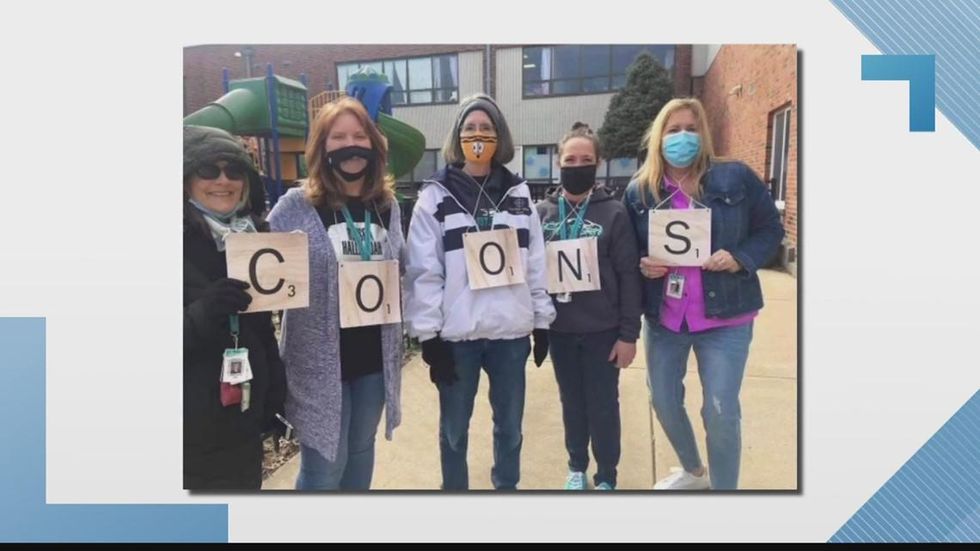A photo of five teachers went viral recently after it was shared on social media. The photo shows the women gathered together spelling out a racial slur as a part of a school-wide "human scrabble" game. Viewing comments left under articles about the insensitive photo led me to write this article. A vast majority of the comments approached the issue with the angle "Why must everyone bring race into everything? It's just one photo. Everyone is way too sensitive these days. This isn't racist." The vast majority of people leaving these comments were also white people. So, I'm here with a bit of a newsflash for any white person who approaches issues like this one from a similar perspective: you don't get to decide what's racist.
White people saying "Confederate statues are history not hate" or "Dr. Seuss's cartoons of Asians aren't offensive" simply don't have the right or ability to make those kinds of assertions. A white person telling a person of color what is racist is as asinine as it would be to watch someone else get punched in the nose and then tell them that it didn't hurt you. Of course it didn't hurt you! You're not the one who got punched. If you're white, you don't have the right to make decisions about what is offensive to people of color because you are not a person of color. When you look at a confederate statue you may see your great great great grandad or someone who founded the city in which you live. To you, that statue is representative of history. When a person of color looks at a confederate statue they may look at a man who was immortalized in stone who, if alive today, would fight to the death in order to own them as property. To them, that statue may represent a harsh reality that people who saw black people as less than human are still celebrated to this day.
The same goes for the recent halt in publication of Dr. Seuss books containing racist imagery. White people are up in arms about how Dr. Seuss is being "cancelled" for no good reason and are often criticizing others for being "too sensitive" about racist stereotypes perpetuated in the books. But the reason that is wrong is because these white people have absolutely no idea what it feels like to be discriminated against based on their skin color. They have no metric by which to judge how deeply offensive a cartoon of a yellow-skinned man with straight lines for eyes or a black skinned man with huge pink lips and no clothes is.
I am a white person who was raised in a white, evangelical, racist, Republican suburb. By all accounts I should be one of the white people commenting to tell people of color that they are being too sensitive. But I have worked hard to examine my own biases towards people of color and I have looked in the mirror to recognize the privilege I have to not be offended by statues in the park or books read in elementary school. If you're a white person, I encourage you to do the same. Recognize that you are privileged to not be impacted by racism. Recognize that you are privileged to be able to look at a confederate statue and see history not hate. And once you have done this, stop telling people of color what is and isn't racist. Just because you're not offended by something doesn't mean racism doesn't exist. Your ability to move on and to criticize others for being upset after seeing a group of teachers smiling while spelling "coons" only serves to show your lack of understanding of the experiences of others and your deep and pervasive privilege as a white person.











